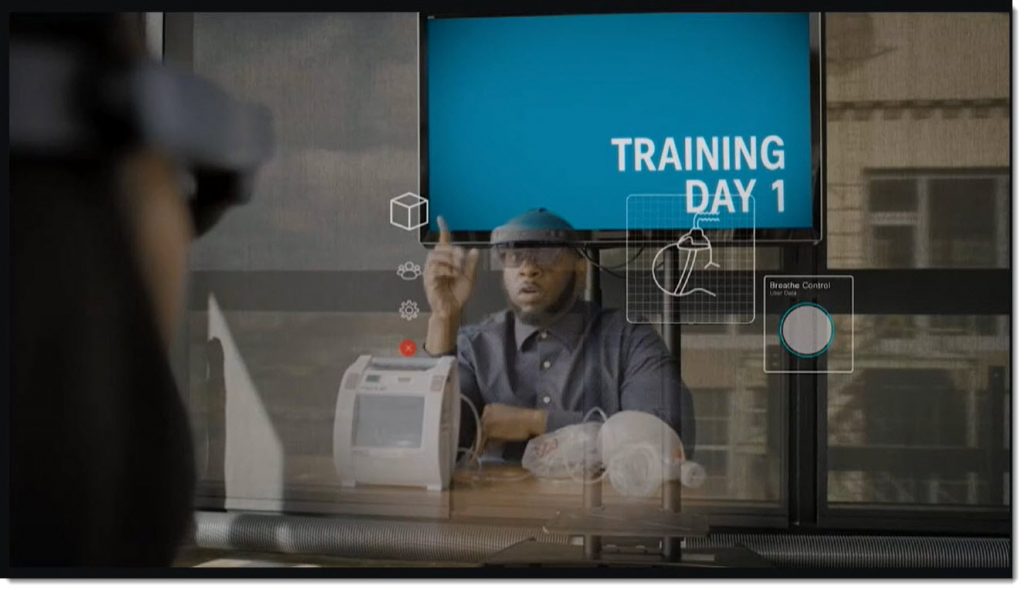DC: This should be very interesting to see how this plays out in the future! A real-time, holographic collaboration solution called “Webex Hologram.”
#Cisco #holographic #remotework #collaboration

DC: This should be very interesting to see how this plays out in the future! A real-time, holographic collaboration solution called “Webex Hologram.”
#Cisco #holographic #remotework #collaboration

Can MasterClass teach you everything? — from newyorker.com by Tad Friend
Malala Yousafzai on set. Though the site’s C.E.O., David Rogier, says, “Learning is uncomfortable,” the shoots are lavish. Photograph by Lewis Khan for The New Yorker
Excerpt:
When MasterClass launched, in 2015, it offered three courses: Dustin Hoffman on acting, James Patterson on writing, and Serena Williams on tennis. Today, there are a hundred and thirty, in categories from business to wellness. During the pandemic lockdown, demand was up as much as tenfold from the previous year; last fall, when the site had a back-to-school promotion, selling an annual subscription for a dollar instead of a hundred and eighty dollars, two hundred thousand college students signed up in a day. MasterClass will double in size this year, to six hundred employees, as it launches in the U.K., France, Germany, and Spain. It’s a Silicon Valley investor’s dream, a rolling juggernaut of flywheels and network effects dedicated to helping you, as the instructor Garry Kasparov puts it, “upgrade your software.”
As Its Conference Kicks Off, Clio Announces Its ‘Most Important Product Release Ever’ (and More) — from lawsitesblog.com by Bob Ambrogi
Excerpt (emphasis DSC):
The Clio Cloud Conference is always the occasion for the law practice management company to announce new and enhanced products, and today’s kick-off of this year’s event was no different, with CEO Jack Newton unveiling what he described to me as the most important product release since Clio’s debut 13 years ago.
That product is Clio Payments, a native e-payments technology built into the Clio Manage law practice management platform, allowing lawyers to offer clients secure and compliant credit card, debit card and e-check payments.
More on Clio Payments below, but, in addition, Clio today also announced…
The Metaverse is Taking Over the Physical World — from interestingengineering.com by Rupendra Brahambhatt; with thanks to Dan Lejerskar for this resource
The virtual world is expanding with real world avatars and digital economy.
Excerpt:
The advent of AR, blockchain, and VR devices in the last few years has sparked the development of the metaverse. Moreover, the unprecedented growth of highly advanced technologies in the gaming industry, which offer immersive gameplay experiences, not only provides us a glimpse of how the metaverse would look like but also indicates that we are closer than ever to experience a virtual world of our own.
What is the metaverse?
 Source: Kelvin Han/Unsplash
Source: Kelvin Han/Unsplash
A metaverse is a group of persistent, shared 3D virtual environments where you (in the form of your digital avatar) can visit places, shop for products, subscribe to services, work with your colleagues, play games, and even customize the scenes around you to meet your personal tastes and requirements, and the digital assets you own. So essentially, a metaverse is a virtual world or worlds, that would allow you to go inside the digital world — to be in rather than on the digital space.
From DSC:
Again I wonder….on the legal side of things…how will this impact what lawyers, judges, legislators, general counsels, and more need to know? Along these lines see:
To do this well, legal department heads and the lawyers and professionals in the department will have to learn, and practice, some new skills: embracing technology, project management, change management, and adaptability.
…
The first, and likely most obvious, skill an attorney needs in a rapidly evolving business environment is a firm grasp on existing and emerging technology. There are two important categories of technology to consider—the first is legal technology and the second is broader technology trends.
‘A very big deal.’ Nonlawyer licensing plan clears hurdle in California — from reuters.com by Karen Sloan; with thanks to Law 2030’s October 2021 newsletter from the University of Pennsylvania’s Carey Law School
Excerpt:
(Reuters) – California is on track to become the largest state to let specially trained nonlawyers offer legal advice in limited settings, such as employment and consumer debt.
The State Bar of California’s Board of Trustees on Thursday gave its preliminary blessing to a proposed “paraprofessional” program by voting to gather public comment on the plan. The public will have 110 days to weigh in on the proposal, which if adopted has the potential to jumpstart the fledgling movement behind legal paraprofessionals, or limited license legal professionals, as they are sometimes called.
The Disruption Of Legal Services Is Here — from forbes.com by John Arsneault
Excerpt:
For the first time in those 12 years, I am now convinced we are on the precipice of the promised disruption in legal. Not because anyone in the law firms are driving toward this — but because venture capital and tech innovators have finally turned their attention to the industry.
Legal services are a much smaller overall market than, say, retail, financial services or biotech. In the world of disruption and the promised gold rush for the companies that do the disrupting, size matters. Legal has just been low on the industry list. Its number is now up.
It’s easy to Monday morning quarterback that industry now. Easy to see how big of a threat Amazon was to those companies. But when you are being rewarded for doing what you have always done and what your predecessors always did, it’s easy to miss what is around the bend. By the time those companies’ executives realized Amazon was a direct competitor with a much better fulfillment model, it was too late.